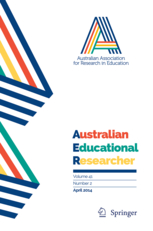Aussie students impacted by inequality of their family’s origins: study

Joanne Peckitt, Communication and Stakeholder Engagement Coordinator
The gender stereotypes and cultural norms of a child’s family heritage impacts their academic performance in Australian schools, research led by the Bankwest Curtin Economics Centre shows.
The research, published in The Australian Educational Researcher, compared 2015 Programme for International Student Assessment (PISA) test scores of non-migrant, first-generation and second-generation migrant children in Australia.
Lead author Associate Professor Mike Dockery, from the Bankwest Curtin Economics Centre, said the research identified that girls performed worse if their family came from a country where girls had lower access to secondary education than boys.
“Across OECD countries, boys typically outperform girls in the PISA science and maths tests, while girls do better on reading tests,” Associate Professor Dockery said.
“That gender gap in maths and science tends to disappear in countries with greater gender equality, so we wanted to examine what role cultural background plays in shaping gender gaps.
“The research supported our prediction that girls whose families came from countries that afforded women lower educational opportunity might still perform worse in Australia, and this finding held true even for second-generation migrants.
“We were surprised to find the effect was even stronger for boys whose families came from countries with lower male school enrolment rates.”
While boys’ results in Australia were more sensitive to differences in educational access in their country of ancestry, the most pronounced exclusion from education occurred for girls. In a number of African countries, such as Somalia, Central African Republic and South Sudan, girls had about half the rate of enrolment in secondary education as boys. In contrast, in countries where boys had lower access, their enrolment rates were at most about 20 per cent lower.
Associate Professor Dockery said non-migrant children reported the lowest PISA scores in mathematics, science and reading, compared to first and second-generation migrant children.
“Children who were born in Australia to migrant parents recorded the highest average scores in all three PISA subject areas, although how well they scored was still impacted by the educational access provided in their parents’ homeland,” Associate Professor Dockery said.
“For first and second-generation migrants, the strongest relationship with test scores for girls came from their mother’s cultural background, while for boys it was the father’s background.
“These results provide evidence that the effect of cultural background is passed on by gender role models and norms within the family, which in-turn affect academic performance. This is an important finding as it suggests policymakers need to consider the cultural differences between male and female children to ensure they can realise their full potential, regardless of their cultural background.”
The research was co-authored by Dr Paul Koshy from the National Centre for Student Equity in Higher Education at Curtin University, and Dr Ian Li from The University of Western Australia.
The paper titled, ‘Culture, migration and educational performance: a focus on gender outcomes using Australian PISA tests,’ can be found online here.





